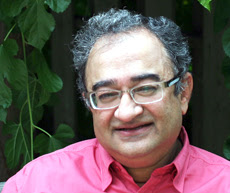Dec. 28, 2004
Courts must have
final say on arbitration
By THOMAS WALKOM
The Toronto Star
http://tinyurl.com/698oz
Former Attorney General Marion Boyd's report on the use of Islamic law in Ontario has drawn considerable flak. Much of the reaction is ill-considered; some verges on hysteria. To some, the very idea of Islamic arbitrators solving civil disputes produces images of faithless wives being stoned.
In fact, a few Islamic "courts" already exist in Ontario and no one has been stoned yet. As well, other groups — particularly Orthodox and Conservative Jews — take advantage of Ontario's broadly written arbitration act to use their own religious rulings in civil disputes and to ensure that these rulings are legally enforced.
In effect, Boyd is asking: What's wrong with all Muslims doing the same thing?
Phrased that way, few can disagree. But the real issue has nothing to do with Muslims. Rather it has to do with a more fundamental question: Should different kinds of people living in the same province be governed by different kinds of laws?
The philosophy behind arbitration is laudable. Many private issues can be solved outside the courts. Ontario's 1991 Arbitration Act (passed when Boyd was minister responsible for women's issues in Bob Rae's New Democratic Party government) is built on this notion.
Its essence is this: In certain civil and family law disputes, disputants are permitted to settle matters under any set of laws they wish. If they want to use Roman Catholic canon law, that's fine. If they want to use Togo's commercial law, that's fine too.
There are two main restrictions. First, both sides must agree to the set of rules they choose to be bound by. Second, the arbitrator's remedy cannot be illegal in terms of Ontario secular law.
Hence, no stoning.
The key to the 1991 act, however, is that once delivered, a ruling is legally binding. Even if it is based on laws that have no status in Ontario, it is enforceable in Ontario courts.
For commercial disputes, this poses little problem. Family disputes, however, particularly those involving divorce, child custody and support payments, are trickier.
When passed in 1991, the act attracted little attention. Religious groups have long made use of religious law. But most disputes, such as annulments or religious divorces, are handled outside the act and are thus legally unenforceable.
A Catholic denied an annulment under canon law may still receive a secular divorce.
Jewish rabbinical courts make greater use of the act, Boyd writes. But even here, the numbers are small. In only about 30 cases a year do rabbinical courts issue edicts (usually on matters of property division and custody) that require secular court enforcement.
Islam's Ismaili sect has long had an organized arbitration system. And a Toronto Sunni mosque has operated tribunals based on Islamic law since 1982.
Given all of this, what's the problem?
Quite a bit, say some Muslims. Indeed, it has been the complaints of the faithful that have fired this controversy, not the prejudices of the ignorant. Both the Canadian Council of Muslim Women and the Muslim Canadian Congress have come out strongly against giving state sanction to Islamic rulings in family matters. As practised, they say, these rulings tend to be fundamentally unfair to women.
These critics argue that Muslim women will be under tremendous pressure to accept Islamic court rulings even though, technically, they need not do so.
Boyd's response is that informal Islamic courts already make judgments, some of which are contrary to Canadian law (she cites cases of underage girls being forced to marry).
Better to regularize matters by bringing these courts under the general umbrella of the Arbitration Act, she says. To this end, she recommends keeping the principle of religious courts but strengthening the Arbitration Act to ensure that all are treated fairly.
For those who insist that religious rules must carry secular legal weight, this makes sense. For the rest of us though, it does not.
Boyd's report envisions a world in which people carry their own laws (she calls them personal laws) wherever they go. In her view, an immigrant to Canada is subject to both Canadian law and — if he wishes — to certain laws of his native land.
At a fuzzy, theoretical level, this may seem fair. Practically, however, it is a recipe for discrimination.
The Ontario government cannot ban Muslims from using the Arbitration Act. That in itself would be discriminatory. But it can follow Quebec's lead by amending the act to ensure that, in family matters at least, all religious tribunals confine themselves to mediation and give secular courts the final say.
No one disputes that different people have different traditions. But laws are not the same as traditions. Laws are the expression of the broadest community.
Salvation may come from God. In democracies, laws come from the people. They should be made by duly elected legislatures. In the final instance, they should be interpreted and judged by the courts those legislatures set up.
Subscribe to:
Post Comments (Atom)

No comments:
Post a Comment